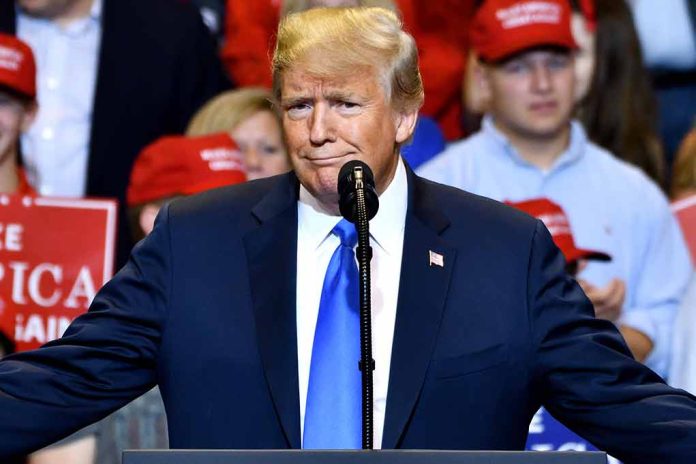
Donald Trump unveils a sweeping plan to protect free speech and reform Section 230, promising to dismantle what he calls a “censorship regime”.
At a Glance
- Trump announces a comprehensive policy initiative to restore free speech in the U.S.
- Proposed reforms include revising Section 230 and prohibiting federal agency censorship
- Plan includes a digital Bill of Rights and penalties for constitutional rights violations
- Trump frames the fight for free speech as crucial for America’s survival
Trump’s Vision for Free Speech Protection
Donald Trump has announced a far-reaching policy initiative aimed at safeguarding free speech and reforming Section 230 of the Communications Decency Act. The proposal, part of his “Agenda47” campaign platform, outlines a series of executive actions and legislative reforms designed to combat what Trump perceives as widespread censorship and infringement on Americans’ constitutional rights.
At the heart of Trump’s plan is a commitment to revise Section 230, which currently provides liability protection for online platforms. The proposed changes would require these platforms to maintain political neutrality in their content moderation practices to retain their legal protections. This move is intended to address concerns about perceived bias in how social media companies and other digital platforms manage user-generated content.
Executive Orders and Federal Agency Restrictions
A key component of Trump’s strategy involves issuing executive orders to prohibit federal agencies from participating in content censorship activities. This measure aims to prevent what Trump describes as collusion between government entities and tech companies to suppress lawful speech. Additionally, the plan calls for banning the use of federal funds for labeling domestic speech as misinformation or disinformation.
“If we don’t have FREE SPEECH, then we just don’t have a FREE COUNTRY.” – President Donald J. Trump
Trump’s initiative also proposes to identify and remove federal bureaucrats involved in censorship activities. This would be coupled with an order for the Department of Justice to investigate and prosecute parties involved in online censorship, significantly expanding the DOJ’s authority in this area.
This alone puts DJT in company with the greatest U.S. presidents since Lincoln. The globalist project has laid siege to democracy and freedom across the globe. The USA is the final redoubt. President Trump just launched freedom’s counterattack. https://t.co/2brXEjTByg
— Robert F. Kennedy Jr (@RobertKennedyJr) November 9, 2024
Digital Bill of Rights and Industry Regulations
Trump’s plan includes the creation of a digital Bill of Rights, which would establish clear protections for online speech and provide users with digital due process rights. This proposal aims to enshrine constitutional freedoms in the digital realm, addressing concerns about the power of tech companies to control public discourse.
“That’s why today, I am announcing my plan to shatter the left-wing censorship regime, and to reclaim the right to Free Speech for all Americans.” – President Donald J. Trump
Trump’s initiative also includes industry-specific regulations, such as implementing a seven-year waiting period for former intelligence officials before they can join companies with access to large amounts of U.S. user data. This measure is designed to prevent potential conflicts of interest and protect user privacy.
Accountability and Transparency Measures
The policy initiative outlines clear penalties for federal employees who violate constitutional rights, aiming to create a stronger deterrent against government overreach. Additionally, Trump proposes new transparency requirements for digital platform moderation practices, which would compel companies to disclose their content management policies and decision-making processes.
“The fight for Free Speech is a matter of victory or death for America—and for the survival of Western Civilization itself.” – President Donald J. Trump
Trump’s plan also includes measures to break up what he terms the “censorship industry” by stopping federal funding for non-profits and academic programs involved in content moderation activities. This aspect of the initiative aims to reduce the influence of organizations that Trump believes are contributing to the suppression of free speech.






